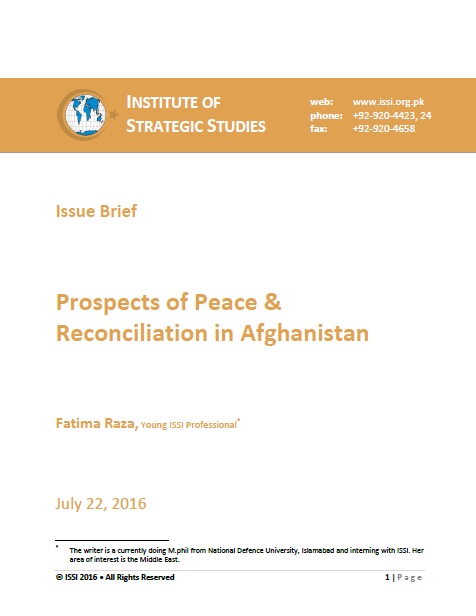Afghanistan is a war-torn country which has seen years of conflict and bloodshed. The prevailing violence in Afghanistan has hindered the process of long-lasting peace in the entire region. Regional countries, along with the major global powers, believe that stability in Afghanistan is a pre-requisite for prosperity in the entire region. American presence in the region has been instrumental in aiding Afghan National Army (ANA) to handle the security situation on their own. However, the peace process in Afghanistan has been stalled despite several attempts by major stakeholders. Pakistan has stressed for an end to the constant state of war in Afghanistan through an indigenous peace process which should include the Taliban as well as the splinter groups. The international community has also urged all involved countries to help guide the nascent government in Afghanistan towards negotiations with the Taliban. Thus it is imperative to analyse the reasons that hinder the peace process in Afghanistan.
The first round of talks that were conducted in Murree in July 2015 was considered a significant breakthrough as they included the Taliban representatives. Later that year, the Heart of Asia Conference was convened in December 2015 where the international community initiated the Quadrilateral Coordination Group (QCG) process for peace in Afghanistan. Since then there have been 5 QCG meetings till date which have all been conducted without the Taliban representatives. The boycott of the dialogues was a reflection of their resentment due to the death of Mullah Omar. After his demise, several splinter groups sprouted from the Tehreek-e -Taliban Afghanistan who refused to enter the dialogue process. Thus, the peace talks held without any Taliban leaders were not as effective as they would have been if their narrative was included. The QCG meetings have also been held frequently this year which have resulted in consensus among regional countries and Afghan national government but the process will remain incomplete without the presence of Taliban representatives. No progress can be attained in Afghanistan until the Taliban are included.















